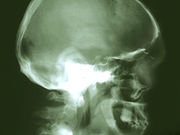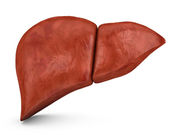FDA Approves First Neonatal MRI Device
Device designed for neonatal brain and head imaging in intensive care units
fMRI, EEG May Detect Consciousness in TBI Patients
Bedside exams often miss subtle signs that patient is 'awake,' researchers say
68Ga-Somatostatin Analog PET-CT Linked to Reduced Costs
Reduced costs versus 111In-octreotide scintigraphy for imaging neuroendocrine tumors
ASCO Addresses Cancer Drug Pricing
New drugs routinely cost more than $100K per year; prices on many existing treatments continue to rise
‘Life’s Simple 7’ Adherence in 20s Tied to Better Brain Health Later
Following lifestyle recommendations in young adulthood pays off later, researchers say
More Patients Enrolled in Cancer Trials Under ACA
Insurer approval rates rose from ~85 percent before Affordable Care Act to ~95 percent after
NCI-Designated Care Often Excluded in Narrow Health Plans
Oncologists affiliated with NCI-Designated or NCCN Cancer Centers more likely excluded in narrow plans
Distress Screening Tied to Fewer ER Visits for Cancer Patients
Lower risk ratios for ER use and hospitalization when cancer program adherence documented
Better Prognosis With Surgery for HPV-Linked Oropharyngeal SCC
Higher survival seen for patients in low-risk category versus intermediate-, high-risk groups
Guidelines Updated for Diagnosis, Management of NAFLD
Liver biopsy is best for those who would benefit from diagnostic, therapeutic guidance



















